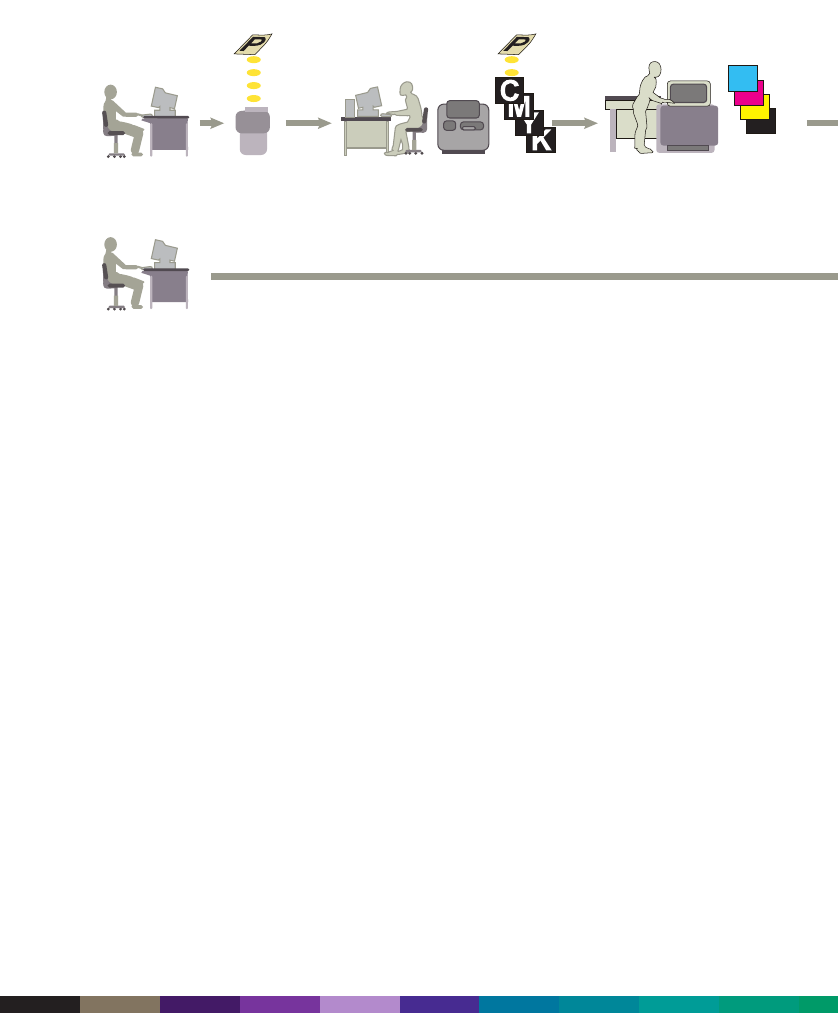
different RIPs are used) and colours will not match exactly. A proof can be produced on
a digital device (like a DocuColor printer or inkjet or dye sublimation system) or using a
photomechanical system (like Cromalin). The advantage of digital systems is that they
have a lower cost and quicker turnaround, and they better fit the digital workflow most
use today. However, photomechanical systems are still used where film is an important
part of the workflow.
If everything is acceptable with the proof, you can then approve the job and have it
printed. If, on the other hand, changes are required, the design needs to be edited and
the steps above repeated.
If the job is ready and is to be printed on a DocuColor 2045 or 2060, there’s no more to
do – the job can be RIPped and printed.
If the job is to be printed on an offset press, plates need to be produced for the
printing process. Traditionally, this involves the production of film from which the plates
are made. Prior to the introduction of digital solutions, this involved producing
photographic negatives or positives (film) of the camera-ready copy. Today, imagesetters
are used to produce film directly from electronic files. The film is then assembled and
light-sensitive plates (or image carriers) are exposed to visible light, UV radiation or
lasers in a photomechanical process to make the plates.
Newer technologies today allow printers to produce plates or image carriers directly from
electronic files. Called CTP (short for Computer-to-Plate) or DI (short for Direct Imaging
on a press), these technologies are designed to streamline the prepress requirements of
offset presses.
1 - 4
DocuColor 2000 series design guide
K
Y
M
C
DIGITAL PRINT WORKFLOW
CAPTIONS TO BE SUPPLIED


















